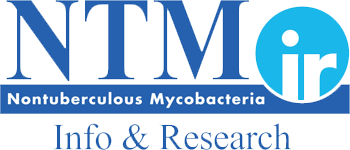With the increased popularity of and access to elective cosmetic procedures, there has been a concomitant rise in skin and soft tissue infections due to nonsterile equipment and conditions. Though these conditions can occur anywhere and, in any facility, with the advent of medical tourism (where a patient travels abroad for less expensive cosmetic procedures), the number of infection cases has sharply increased.
Because so many surgical and injection procedures involve the use of water, which is known to harbor nontuberculous mycobacteria, healthcare providers here and in other countries are seeing more extrapulmonary NTM infections, particularly involving rapid-growing species such as M. abscessus, M. chelonae, and M. fortuitum. In everything from injections and fat transfers to facelifts and breast reduction or augmentation surgery, some patients who travel abroad for these procedures end up with severe NTM infections in their skin and tissue which often leave them with permanent disfigurement.
The U.S. Centers for Disease Control (CDC) has been investigating and has identified an outbreak of NTM infection linked to a cosmetic surgery facility in the Dominican Republic. While this is not the first time such an outbreak has occurred, it is probably the largest and this issue is likely to continue as medical tourism grows in popularity.
As a patient, if you are considering any kind of elective cosmetic procedure, you should be fully aware beforehand of all the risks and ensure any facility or practitioner you use takes every precaution to maintain a sterile field, sterile equipment, and sterile implants or injectables. As a provider, if you have a patient who has undergone a cosmetic procedure and begins exhibiting symptoms of infection, you should have a high index of suspicion for NTM infection and order the appropriate AFB smear and culture testing.
